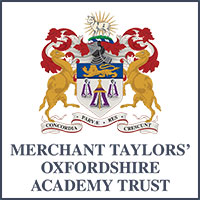Safeguarding
The Governing Body takes seriously its responsibility under section 11 of the Children Act and duties under “working together” to safeguard and promote the welfare of children; to work together with other agencies to ensure adequate arrangements exist within our setting to identify and support those children who are suffering harm or are likely to suffer harm. We recognise that all staff and governors have a full and active part to play in protecting our pupils from harm, and that the child’s welfare is our paramount concern.
Our school should provide a safe, caring, positive and stimulating environment that promotes the social, physical and moral development of the individual child free from discrimination or bullying where children can learn and develop happily.
All staff at Brightwell are trained in safeguarding and/or specialist safeguarding and all adults adhere to the DfE guidance: Keeping Children Safe in Education. This should be read alongside statutory guidance Working Together to Safeguard Children and departmental advice What to do if you are worried a child is being abused - advice for practitioners.
The Designated Safeguarding Lead (DSL) at Brightwell School is the Headteacher, Sue Potts. Contact number 01491 837024.
In her absence, all concerns should be directed to Amy Knibbs (Assistant Headteacher & DDSL), Yaz Light (SENDCo & DDSL) or Sarah Dow (Trust Safeguarding Officer).
The Safeguarding Governor is Robert Frost.
If you have any concerns regarding the welfare of a child, please contact the staff named above.
As a member of the public with a safeguarding concern for a child, please call The Multi-Agency Safeguarding Hub (MASH) on 0345 050 7666.

If you require more information or help knowing what to do if you are concerned about a child, please see the Oxfordshire Safeguarding Children Partnership's website at
https://www.oscp.org.uk/concerned-about-a-child/

Brightwell is an OPERATION ENCOMPASS school.
Operation Encompass is a scheme that will ensure that we can better support any child where a domestic incident has been reported to Police from their home by informing us within the following 24 hours.
Following a domestic incident, the Police will telephone a nominated member of staff at the school to notify us that an incident has taken place. This will ensure that we are made aware early enough to support children and young people in a way that means they feel safe, supported and listen to.
It is a multi-agency project that includes the Police, local schools and the Council. It has been successfully implemented in other parts of the country and has helped schools and parents to help children deal with the impact that domestic abuse in the home can have on them.
You can find out more about Operation Encompass here: http://www.operationencompass.org/
We are committed to working in partnership with local relevant organisations to safeguard and protect children and to provide the best possible care and support for our students.
Looking for support?
At Brightwell cum Sotwell CofE Primary School, the safety and wellbeing of our pupils and their families is our top priority. If you or someone you know is experiencing domestic abuse, please remember you are not alone. Confidential and compassionate support is available through services such as the National Domestic Abuse Helpline (0808 2000 247) and local organisations. For more information and access to support services, please visit A2Dominion’s Domestic Abuse Support Services. Further support can be found at Reducing the Risk.
You can also speak in confidence with our designated safeguarding lead at school, who can help connect you with the right support. Your wellbeing matters to us.
For information on how we - and you - can keep our children safe online, please see our 'E-Safety information and advice' page.
Safeguarding documentation for parents
Visit our page on E-Safety information and advice for parents.
Examples of how we teach safeguarding
* Using our core school values to promote rights and responsibilities; teachers model these values and hold high expectations around the children displaying them when in school.
* Giving children the opportunity to learn about different models of democracy and how to ensure we have a safe and productive environment in our school by being part of our School Council.
* Tailoring our curriculum to cover a wide range of elements of keeping children safe, across the school - including our computing sessions with a regular focus on online safety, Jigsaw PSHE / RSHE and Religious Education lessons that reinforce messages of tolerance and respect for others and a healthy eating focus in science and technology.
* Working closely with representatives from both the local and wider community - the NSPCC (‘Speak Out / Stay Safe’ visits & PANTS assembly), PCSOs / Police / Fire Safety etc.
* Celebrating important events in the calendar, including Anti-Bullying week every November and Internet Safety Day every February.
* Inviting our Year 5 and 6 children to take part in a Cycling Proficiency training course.
* Through transition work from pre-school settings to Reception and Year 6 to Year 7.
* Encouraging our more vulnerable children to participate in after school clubs, helping with funding as appropriate.









